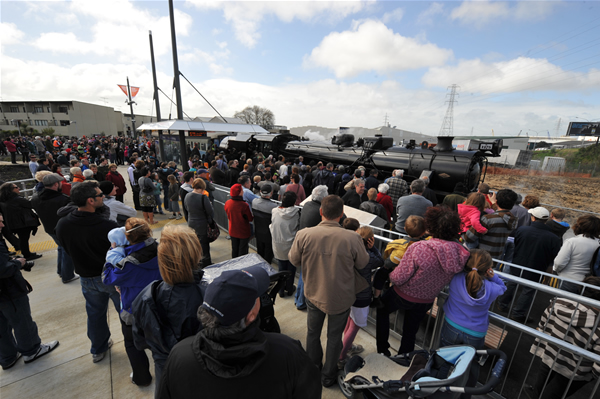North Rodney escape bid could help rest Auckland
When members of the Herne Bay Ratepayers Association Inc (HBRAI) asked to meet with me in May and included on the agenda the application by a rural northern Rodney group to break away from the Super City, I confess I was a little puzzled.
But I soon got the picture. It seems that the rather obscure events at the remote northern end of the region could well have major implications for the Auckland Council and therefore for all Auckland ratepayers. The North Rodney Action Group had previously had its application for a hearing to break away from Auckland Council rejected by the Local Government Commission. But the High Court ruled that their application must be heard. Accordingly the Commission has invited submissions ‘alternative applications’ from across Auckland because the northern Rodney application could affect the whole Auckland region. Alerted to the possibilities by the HBRAI members I am putting in my own submission.
I have had some involvement in North Rodney politics. Back in 2009 when the Super City was being set up by the government, a determined attempt was made by northern Rodney interests to take the northern half of Rodney out of Auckland and into Kaipara District and Northland. However some northern Rodney ratepayers (apparently the majority) felt the move was ill-conceived and appealed to the Auckland Regional Council. The ARC had its own interests to uphold, especially the eight coastal regional parks paid for by ratepayers across the Auckland region. In the end, the government vetoed the idea. Just as well as it turned out. Not long after Kaipara District declared itself bankrupt leaving its ratepayers with huge debts and a government appointed commissioner. So what is my submission about? Well this time round the application is not to move North Rodney into Northland but to form an independent North Rodney Unitary Authority.
Under the Local Government Act (2002) s.5, a ‘unitary authority means a territorial authority that has the responsibilities, duties, and powers of a regional council …’
Interestingly the best known example of a unitary authority is the Auckland Council itself.
Becoming a ‘unitary authority’ would mean northern Rodney for all practical purposes become would another ‘region’ of New Zealand. While I personally don’t believe that tenable in terms of the population and boundary requirements of the Local Government Act, what I do argue for as an alternative is for North Rodney to become a district council. This would give the North Rodney community a much greater level of self-government while retaining north Rodney within the Auckland region. In its relationship with a new North Rodney district council Auckland Council would revert to being a regional council.
As I have told the Commission, the present ‘Super City’ arrangements cannot be defended as optimal in terms of efficiency and cost-effectiveness, nor does the Auckland Council and its CCO’s have much public credibility at the present time. This is not just my opinion. The Auckland Council’s own recent public opinion poll of 3000 citizens (Citizens Insight Monitor) include the following quite damning findings:
- 15 per cent of respondents were satisfied with the council’s performance, while 36 per cent were dissatisfied.
- 17 per cent of respondents say they trust the council to make the right decision, while 47 per cent do not.
The 2010 ‘Super City’ amalgamation resulted in an organisation which today has assets of over $43 billion, a debt of $8b and a turnover of $5.6b a year and 11,380 employees. This is on the scale of a major business corporation. In the business world it is standard practice that significant corporate mergers, after 5 years or so, are subjected to a post-merger audit. This has not happened with the ‘Super City’, nor is one planned. Such an exercise could only be initiated by the council or the government. While the government is obviously not unwilling to give the council a jolly good kicking every now and then, any admission that its own creation could be dysfunctional is apparently to be avoided. Despite this, a thorough-going audit or review really needs to happen.
Simply put the Super City is too big, too monolithic, too bureaucratic, too secretive and with too much of its responsibilities outsourced to the CCOs (some like Auckland Transport are also too big with too many non-transport responsibilities). In contrast, democratically-elected Local Boards are badly under-resourced in funding, powers and responsibilities.
Rodney Hide’s Super City baby was not perfect at its moment of birth and it’s certainly not perfect now.
Providing the opportunity for district councils such as for Rodney (in the north and south) and for Waiheke (also keen on breaking away) under the umbrella of the Auckland region, alongside local boards in the more urban areas, would, by using a standard and time-tested template, enable the amalgamated Auckland Council to evolve and adapt to better meet the aspirations of its citizens and its different communities. Without compromising a unified region it would also bring an element of diversity and healthy competitive tension to the present monolithic structure of the Auckland Council. In other words more freedom and better local government for North Rodney and Waiheke could be good for all of us.
This article appeared in the Ponsonby News July issue.




Agree, agree, agree!